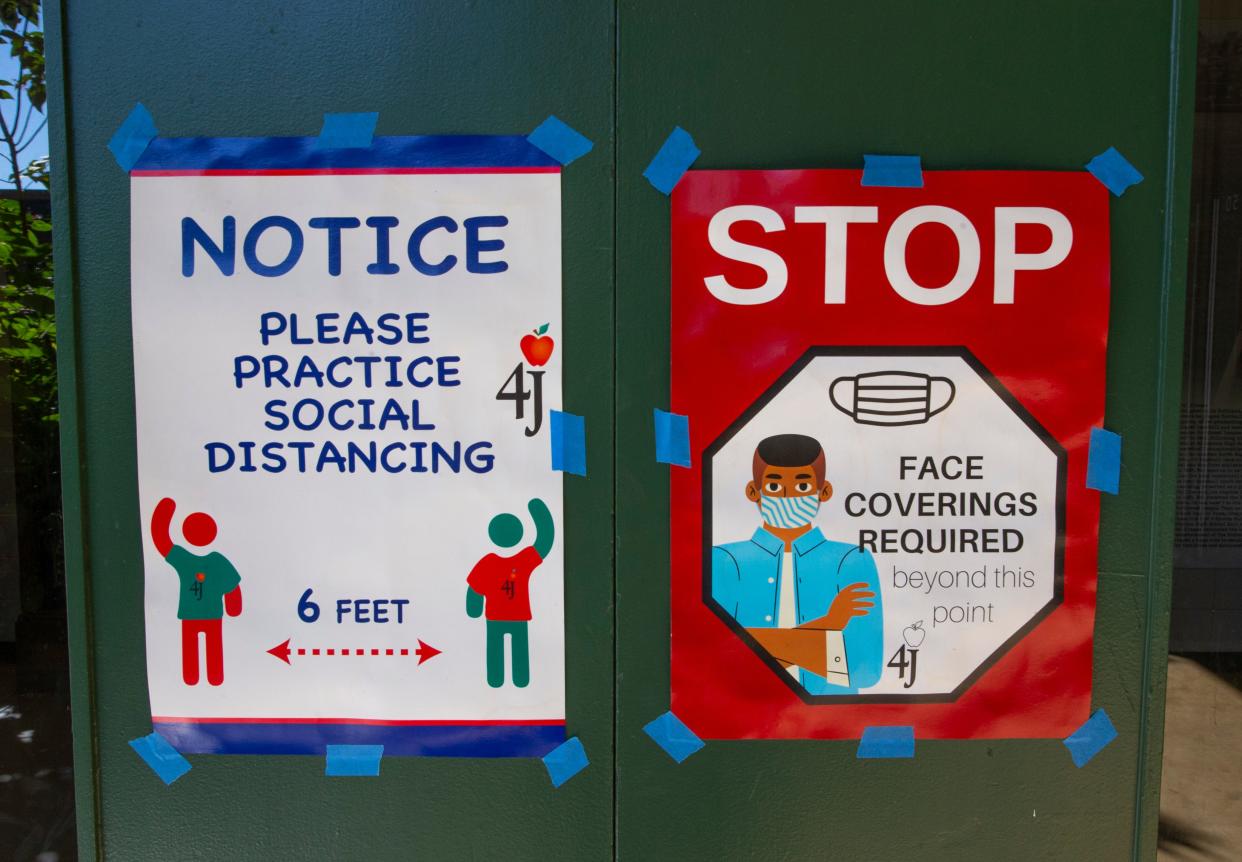Reliance on computers during COVID-19 made us less humane

A strange sort of efficiency has been amplified by the pandemic. It’s always been among us, necessary and unwelcome. During our lockdowns along with masking and socially distancing, it has lurched dangerously close to becoming the norm. As we look forward to a spring and summer without masks or crowd limits, we should be aware.
The issue came to the fore yesterday when I bumped into an old friend outside Sweet Life Patisserie. Sweet Life (like so many others) has not offered sit-down services for most of the past two years, so bumping into people on sidewalks has been pretty much our only bumping-into option these days.
My friend spent most of the pandemic feeling lonely and separated from others. In any other town, she’d be known as an activist. In Eugene, she is seen as just a regular person. She recently adopted a puppy, who brings her joy in spite of headlines about war, ecological catastrophe and economic dislocations.
Her partner has been a community organizer as long as I’ve known him. The pandemic hit him especially hard. He’s always been happiest when he can gather people around a common cause. But people haven’t been able to gather, even though causes have never been more common. They’re hurting but they won’t complain. Others have it worse.
We all share this pain to some degree. We’re social creatures. Did the coronavirus cause our pain? Or was it our adaptation to it? Or, worse still, our willingness to accept the adaptations as normal?
We’ve relied on computers to give us any sense of connectedness to others and the world for the past two years. We meet on Zoom. We bank online. We use our phones to arrange curbside pickup. We swap memes on social media. We exercise with video partners from our living room. We unwind at the end of the day with Netflix.
Computer algorithms can make our moves more efficient, but less humane.
We must root out this inhumane efficiency. Ask yourself, “Am I being relational in this moment, or transactional?” Is the exchange solely about whatever is changing hands, or does it also concern the hands and the people connected to them? Transactions can be well defined; the people involved cannot.
The trouble with being human is that our deepest needs and values are not easily defined, much less calculated and tabulated. We’re built to be non-fungible.
Capitalism’s efficiency would prefer that we all become interchangeable. Then the individual parts can operate smoothly, serving the economic and corporate whole. We’re left richer in pocket, but poorer in spirit. It cannot continue without our permission, which we must fiercely and deliberately withhold.
We see faces all day long, framed in space and time by our screens. They’re like humans, but with an “off” button.
Like Plato’s cave allegory, the shadows on our screens are all we’ve had for so long that they feel real. But they are not real. They emanate from what is real. Soon we must leave the shadowy efficiency of transactions and reacquaint ourselves with the fleshy frustrations of relationships.
Don Kahle (fridays@dksez.com) writes a column each Friday for The Register-Guard and archives past columns at www.dksez.com.
This article originally appeared on Register-Guard: Reliance on computers during COVID-19 makes us less humane

